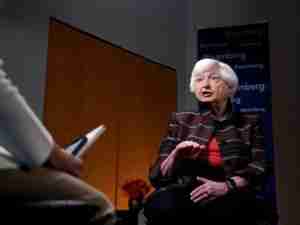Brexit Foretaste Already on Menu in Brussels as U.K. Loses Perks
By: Jonathan Stearns | Jul 05 2016 at 07:00 PM | International Trade
Even before its referendum on European Union membership, the U.K. faced warnings that leaving would deprive it of a voice. That scenario is now playing out.
Two weeks after the vote to quit, and months before London plans to trigger the process that would spark talks on a new relationship, Britain is being sidelined, while remaining subject to Europe’s regulations. The result is a lame-duck role in decision-making institutions and possible changes to legislation or positions over which the nation has had significant influence.
Following are examples of the consequences for the U.K. of its vote to quit the 28-nation alliance:
Lost Presidency
The U.K. may renounce its six-month presidency of the EU scheduled for the second half of 2017. The job, which involves steering EU business and helping broker legislative compromises, could be assumed by Estonia, whose presidency of the bloc would otherwise take place in the first half of 2018. The U.K. last held the EU presidency in 2005, when then Prime Minister Tony Blair used the occasion to host a meeting of European leaders outside London.
Empty Hand
Ian Duncan, a U.K. Conservative member of the European Parliament, resigned his lead role crafting rules for the next phase of the EU program that caps carbon dioxide from power plants, factories and airlines—one of Europe’s most important environmental initiatives. The environment committee has put the resignation on hold pending higher-level deliberations in the EU assembly on how to treat lead legislative work by British members in general.
Key Posts Lost
The U.K.’s 73 members of the 751-seat EU Parliament risk being denied not only key roles over future draft European legislation but also leadership posts. At the start of 2017, the Brussels and Strasbourg-based Parliament is due to make a new round of appointments to chair its committees and fill its vice-president jobs. The Brexit vote threatens the positions of U.K. members such as Vicky Ford, a Conservative who heads the influential internal-market committee, and Claude Moraes, a Labour politician who leads the civil-liberties, justice and home-affairs panel.
End of the Road
The European Commission, the EU executive arm and engine, has a leadership team that is made up of a commissioner from each member state and a 33,000 strong staff that includes more than 1,100 U.K. nationals.
Jonathan Hill, U.K. Prime Minister David Cameron’s appointee to the Brussels-based commission, resigned from his job as EU financial-services chief, one of the most prized regulatory posts. His successor, who has yet to be named, may end up getting no portfolio or a marginal one.
While commission President Jean-Claude Juncker has signaled that he won’t fire the British nationals who help run the place, their chances of being promoted to—or even retaining—much-coveted director and director-general jobs may be gone. So are the hopes of Britons seeking to join the commission’s ranks from elsewhere.
Lost Leverage on Trade
The U.K. has flexed its free-trade muscles in Brussels by helping to block draft European legislation that would make it easier for the EU to impose higher tariffs on imports in cases where they’re found to have been sold below cost, or “dumped.” The three-year old stalemate among EU governments could be broken if the Brexit plan and any pressure from other national capitals prompt the U.K. to withdraw opposition to the proposal amending Europe’s “trade-defense” tools.
Sanctions Support
Britain has been a steady backer of EU economic sanctions against Russia imposed two years ago as a result of the Kremlin’s encroachment in eastern Ukraine. While those penalties have just been prolonged until end-January 2017 and maintaining them beyond that date would again require unanimous backing from EU capitals, the group of skeptical countries including Italy, Hungary and Cyprus has been strengthened by the Brexit vote.
Tax Bases
The U.K. has for years spearheaded opposition along with Ireland to draft EU legislation that would create a common base for calculating the taxable profits of companies, fearing this step would open the door to harmonized rates. While establishing a common consolidated corporate tax base would—as with decisions on sanctions—require unanimous support, the Brexit vote risks leaving Dublin without a key political ally.
Lingua Franca
One area where the June 23 U.K. vote to depart the EU is unlikely to have any impact is on the role of the English language in the bloc. For starters, English is an official tongue of the EU and removing it would—once again—require unanimity among member countries including English-speaking Ireland and Malta.
Furthermore, English is the prime working language in key EU institutions. For example, about 80 percent of documents in the commission and 75 percent of paperwork in the Brussels office of EU governments originate in English.
In addition, at a more political level, former communist eastern European countries that joined the EU in 2004 are generally more comfortable operating in English as a foreign language than in French.
In short, while the Brexit vote threatens numerous British influences in the EU, English’s lingua franca status isn’t one of them.








